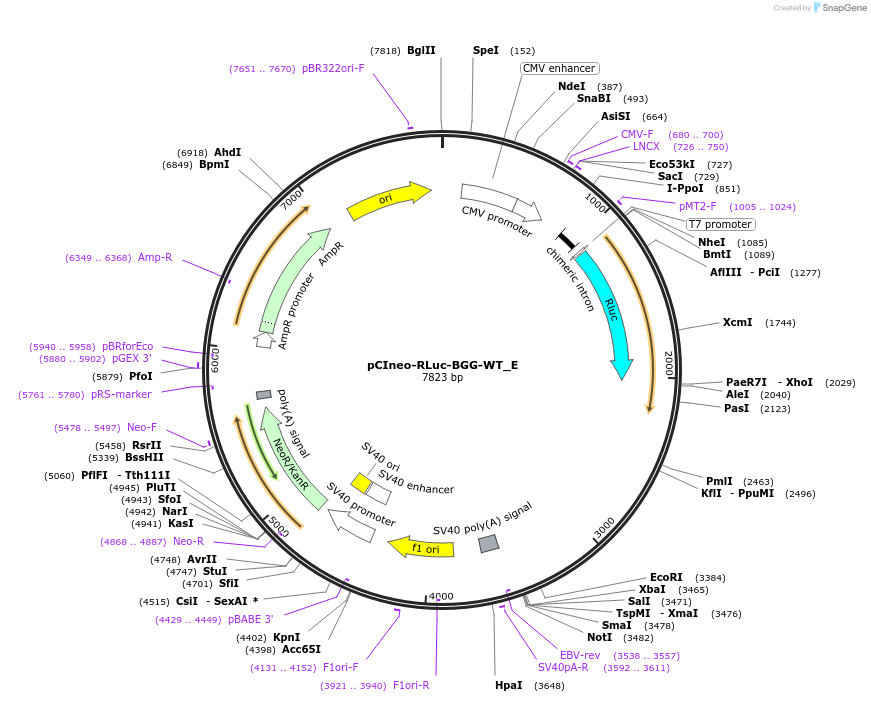pCIneo-RLuc-BGG-WT_E
(Plasmid
#146192)
-
PurposeMammalian Expression of BGG-WT
-
Depositing Lab
-
Sequence Information
Ordering
| Item | Catalog # | Description | Quantity | Price (USD) | |
|---|---|---|---|---|---|
| Plasmid | 146192 | Standard format: Plasmid sent in bacteria as agar stab | 1 | $89 | |
Backbone
-
Vector backbonepCI-neo
-
Vector typeMammalian Expression
Growth in Bacteria
-
Bacterial Resistance(s)Ampicillin, 100 μg/mL
-
Growth Temperature37°C
-
Growth Strain(s)DH5alpha
-
Copy numberHigh Copy
Gene/Insert
-
Gene/Insert nameBGG-WT
-
Alt nameHBB
-
SpeciesH. sapiens (human)
-
Entrez GeneHBB (a.k.a. CD113t-C, ECYT6, beta-globin)
Cloning Information
- Cloning method Unknown
Terms and Licenses
-
Academic/Nonprofit Terms
-
Industry Terms
- Not Available to Industry
Trademarks:
- Zeocin® is an InvivoGen trademark.
Depositor Comments
genomic DNA extracted from NCBI: NT_009237.18 Plasmids from this collection were made available to the research community and donated after the lab closed. Please note that the sequence provided by the depositing laboratory may be theoretical/predicted or based on Sanger sequencing results. There may be discrepancies between sequencing results obtained by Addgene and the depositor sequence. If an Addgene verified sequence is not available, please contact [email protected] before placing your order to request that our lab fully sequence the plasmid.
These plasmids were created by your colleagues. Please acknowledge the Principal Investigator, cite the article in which the plasmids were described, and include Addgene in the Materials and Methods of your future publications.
-
For your Materials & Methods section:
pCIneo-RLuc-BGG-WT_E was a gift from Elisa Izaurralde (Addgene plasmid # 146192 ; http://n2t.net/addgene:146192 ; RRID:Addgene_146192) -
For your References section:
An unusual arrangement of two 14-3-3-like domains in the SMG5-SMG7 heterodimer is required for efficient nonsense-mediated mRNA decay. Jonas S, Weichenrieder O, Izaurralde E. Genes Dev. 2013 Jan 15;27(2):211-25. doi: 10.1101/gad.206672.112. 10.1101/gad.206672.112 PubMed 23348841



